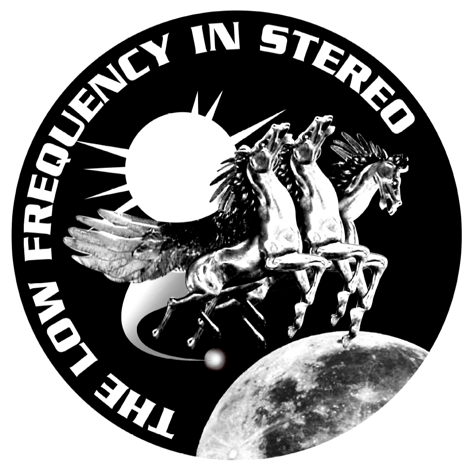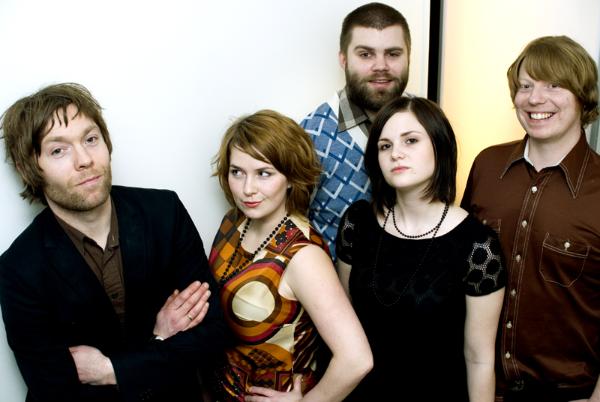Interview

(Progressive Newsletter Nr.65 09/05)
excerpts from an interview with Njål Clementsen (Guitar)
We all come from a wide range of genres and directions in music. Some find their roots in early ninetees establishments as Sonic Youth and Pavement, some in 60s jazz and folk like Gabar Szabo and Fela Kuti. We all enjoy acts like Stereolab, Can, Yo La Tengo and Neu! But in the end there is no limit to where we draw our inspiration from, it's all about what comes flowing out of the speakers in the end.
How do you manage to combine a pop approach like on "Starstruck" with something in the vein of the cosmic space rock monster "Solar System"?
I think the key is to jump into the music, without any form of fear of not being recognized as real. The studio is truly a laboratory for us. Everything is about what the song needs. It is just as natural for us that "Solar System" came out as a ten minute monster, as well as "Starstruck" coming out as a pop flirt.
Is it difficult for you to keep the musical balance between sounds / musical approaches of the past and developing your own style or does this just comes naturally?
It's kind of strange, because we never really discuss any direction to take or what we would wish to sound like when we jam out new material. The whole development of the band's sound has been really natural all of the time. We jam out a whole bunch of material in the band studio before going into the recording sessions. We went in the studio with 40 demos, after working a while, the selection of material for the album became really obvious.
In which way did the guest musicians on the current album contribute and bring in their own personality?
Kjetil Møster did some really great stuff on "Turnpike" and "Solar System". The guy is a living legend and really lifted those tracks to a new meaning. Erik Bringsvor from the band Hypertext is a great friend and was good support to have in the studio. He has really big ears and also made some beautiful Elka-Synth sounds. Nils &Oslahs;kland, also a legend in his field, made some nice ambient sounds on "Solar System". But most of all, our producer Jørgen Træen did whatever was needed to bring the best out us as a band. He is truly genius.

How do you look back on your musical development since the start of the band back in 2001?
The development of the band has been huge in so many ways. Low Frequency started of with an idea of playing as little as possible. Quiet was the key. Little by little the band has grown from that initial idea to dragging in all of the members music. The directions from which the members gather are vast. The Low Frequency In Stereo is a five-headed beast, growing at all times. Not being afraid of going up in tempo when everyone labeled us as a low fi/postrock band, and not being afraid to sing when everyone put is in the instrumental genre has been a key for us.
Looking back to your albums from your nameless debut until "Futuro". What were your own feelings, expectations concerning these releases and how were they fullfilled?
Every release has it's own place in our identity as a band. We are very proud of them all. As the band grew in sound with every release, so did ambitions and awareness of where we are as a band. I think it's safe to say that Futuro is our most ambitious album so far, and our ambitions are far from fulfilled.
In which way do you think your music typical Norwegian / Scandinavian and on the other side also very unique?
To be honest, I don't get much of a scandinavian felling from our thing. However, if people get that vibe from it, that's cool. But as a band in Norway, we have always tried to look and listen far beyond the borders of scandinavia. We are definitely not, and have never been a part of the scandirock scene.
There are various attempts to describe your style ranging from "lo-fi-post rock" to "experimental music". How do you like to see yourself concerning the musical approach?
It does not get much more difficult than this. I can understand people having trouble with putting the pin on our music. We have a hard time telling people what we sound like as well. However, I don't really understand the need to put s "correct" label on everything. I some times wonder if there has gone some sport in it, who can put the most accurate reference-label-sounds-like one a band? I think one of the things that keeps us from being a part of a "scene" is our reluctance to compromise when it comes to our music. No matter how many bands you can namedrop when listening to us, we still sound like The Low Frequency In Stereo.
Kristian Selm © Progressive Newsletter 2009